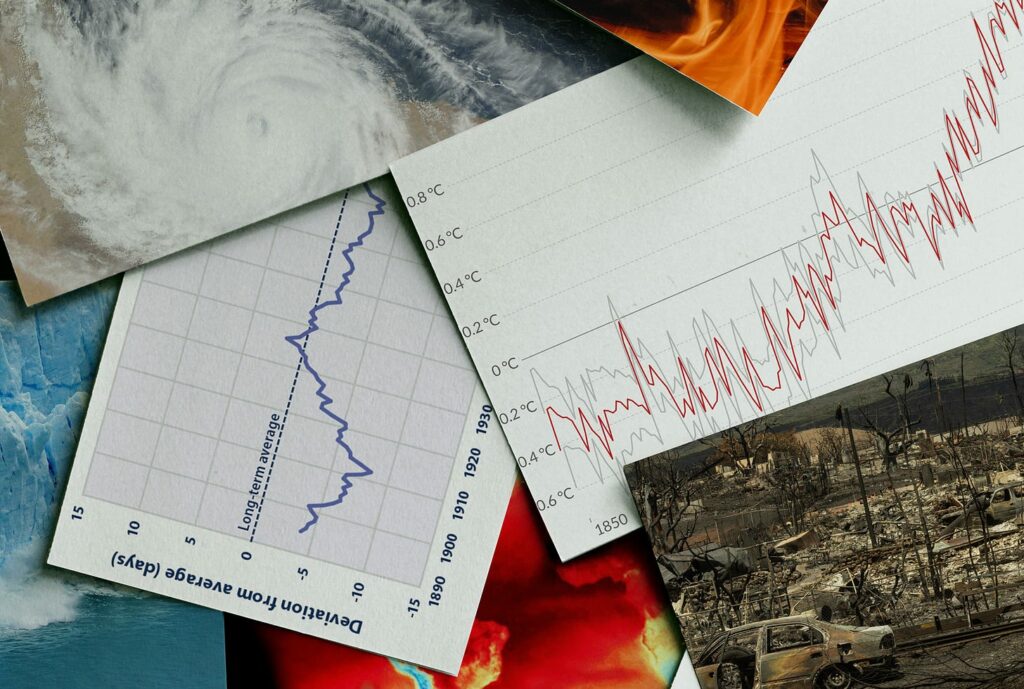This week our look at Dr. Patrick Brown’s essay on the social feedback loop in climate science tackles the myth of science-based policymaking, showing that it is more a case of policy-based science making. And the main exhibit for that is the 2°C limit so beloved of climate activists and now enshrined in international treaties. As Brown shows, it did not emerge from the science. Instead it was always a political fiction, and even when scientists have tried to say reasonably sensible things about it, the activists ignore them and push their rhetoric even harder. All in the name of following the science, you see.
Brown points out that the 2°C number was not the product of scientific analysis:
“It is a widespread misconception that the 1.5°C and 2°C global warming limits were first established by climate science and only subsequently incorporated into policies like the Paris Agreement. In fact, the 2°C limit was first proposed in the late 1970s, long before sophisticated studies of climate impacts had emerged. Its appeal was, essentially, that it was a round number thought to represent the warmest the earth had been in 100,000 years.”
The number kept getting tossed around until it was officially codified into the Paris Agreement, which also added the aspiration to limit warming to 1.5°C. Having made such a big deal of the 2°C target, and after many years of insisting that it was based on “the science”, the UN finally asked the IPCC to write a report on the impacts of 1.5°C versus 2.0°C warming. As Brown notes, the resulting report only made a rather trivial point that 2.0 is larger than 1.5, but nonetheless it was (of course) misrepresented as endorsing the idea that 1.5 °C will be catastrophic and we have only 10 years to prevent it:
“Despite widespread misrepresentation in the media, this report did not say that global warming becomes catastrophic beyond 1.5°C, and it certainly did not claim that limiting global warming to 1.5°C represented the ideal balancing of all costs and benefits for the entire world. It merely said that the climate change impacts at 1.5°C are less severe than those at 2°C.”
So, says Brown, the idea of limiting global warming to 2.0°C did not come from science but from “the collective judgment of elite policy actors.” And those policy actors are motivated by an environmental philosophy that sees any modification of the Earth as immoral and something to be avoided. But since they don’t want to come out and say that that is their philosophy, they instead must dress up their opinions as being based on scientific authority.
This costume party, he says, becomes camouflage, turning analysis into stealth advocacy: “advocacy based on normative commitments but disguised as the outcome of a purely dispassionate scientific process.” Because climate science, especially the study of climate change “impacts”, came into being in a setting in which it was (and still is) taken for granted that any impacts are bad, the science has been conformed to the political imperative, not vice versa:
“This history indicates that climate change impact science matured in an environment where the philosophical precepts and policy prescriptions had already been established, and it has thus always been easier, from a social or career advancement perspective, to conduct research that more-or-less supports the established philosophy and political goals than it has been to conduct research that undermines them.”
The result is a vast torrent of science tailored to serve a political agenda, even studies that are transparently flawed in their assumptions and analyses:
“The consequence of this is that in addition to there being science-based policy, there is also plenty of policy-based science. This became clear to me in 2018, when a paper published in Nature, ‘Large potential reduction in economic damages under UN mitigation targets’, received credulous press coverage, inspiring headlines like ‘Limiting temperature increase to 1.5 Celsius could result in $30 trillion of savings for global economy, study shows.’ The study, in fact, did not show that. Despite what was implied by the title and the headlines, the study did not offer a cost-benefit analysis of the Paris Agreement’s limits but rather a benefit-only analysis, ignoring the well-known costs of forcibly decarbonizing the global economy.”
CDN readers will not be surprised by any of his assessments. As we have long observed, it is an iron rule of climate science that all impacts of climate change are bad, and all bad things are caused by climate change. Not because either statement is true, but because the scientists have a narrative to maintain. And while, as Brown notes, there are studies that challenge this monomania, the warped nature of the climate science social feedback loop makes it hard for them to get published, and ensures they will never appear in high impact journals"
“A fair literature that was disinterested in the way the results come out would allow the equivalent cost-only analysis framed in the same way to be published: a paper with the title ‘Large potential damage to world economy under UN mitigation targets’. But I consider it vanishingly unlikely that a title like that could see the light of day, not because it is factually wrong but because it’s too offensive to the sensibilities of most of the research community.”
And we mustn’t offend the delicate sensibilities of the research community, must we?



The mythical 2C temperature apocalyptic threshold fails to recognize that earth has had a history of temperatures 4C higher than today within the last 10,000 years including the Roman Warm Era. In fact, 60% of las t10k years s were warmer than today.
Yet more conspiracy theory talk this week, to wit: "Not because either statement is true, but because the scientists have a narrative to maintain." You mean there are climate scientists who don't zealously believe what they publish, but rather publish rubbish they don't actually believe it in order to maintain a political narrative? Say it ain't so, CDN!
It must be liberating to throw off the constraints of an obviously flawed working assumption after all these years.
Thylacine, by now we get your oft-repeated points of view regarding fraud and conspiracy within 'climate science' (and I do not disagree with you), but I think you should somehow try to dicuss it directly with John Robson.
I like your comments because they are well-researched, well-argued and well-written, but I'm beginning to skip them due to the repetition, even when I agree.
It isn't about whether scientists publish something they actually believe in or not.It's about maintaining grants,jobs,stature,etc in their community.Ask Peter Ridd,Susan Crockford,Judith Currie what happen to them when they railed against the climate narrative,and published work that disagreed with that narrative.Almost everyone knows the answer.